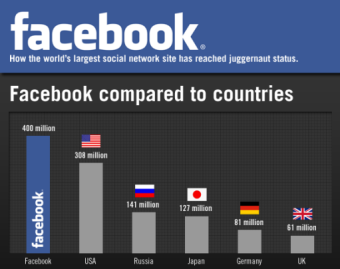Healthcare: The Desirable Duopoly Of Doctor & Patient
 Guest post by Daniel Kaufman MD
Guest post by Daniel Kaufman MD
Ask any corporate tycoon what the toughest business structure to beat is, and surely they'll tell you it's a duopoly - two co-dominant institutions presiding over a market, essentially cutting out all other competitors or outside influences.
Are the two big players friends or foes? One can make a case for both. Republicans and Democrats, Ford and GM, and even Magic and Bird - all dominant duopolies that symbiotically blasted and outlasted their competition. That is, of course, until the third party showed up - the new kid on the block. Traditionally, the third party, or its potential to arise from obscurity into the limelight, has been a great offsetting entity to the status quo of the omnipotent duopoly. Just ask the Tea Party, Chrysler, or Michael Jordan. These entities, the consummate "start-ups", all served to destabilize the ruling double-team, and thus helped democratize whatever industry they were involved in. As it turns out, this destabilization, a requisite force of the free market, serves to wipe up the cobwebs of industry stagnation, and create new avenues and vectors for ingenuity and prosperity. But not all third parties share in this benevolent intention. Some third parties have done the exact opposite.
It might sound like blasphemy coming from a libertarian, whose inherent belief system is governed by the ultimate aspiration for democratization and equalization of opportunity; but, we need to reinstate the desired duopoly in medicine: the Doctor and Patient. Since the dawn of humanity medicine has always been a two-person dance. An elegant, professional, distinctly intimate interaction guided by altruism and professionalism on the doctor's part and self-preservation on the patient's part. This exchange of privileged professional services, the provision of healthcare from doctor to patient, does involve, however, an economic exchange as well. This is where the vultures and hyenas of society smell the blood. They’ve noticed something: an opportunity for profit and control. Insidiously, the third party of medicine, be it commercial healthcare insurance companies or government-run programs, has been let into the doctor's office, and predictably, has done nothing to improve quality or cost of healthcare. Third party payers have so entrenched themselves into the healthcare system, that they no longer serve as a typical “insurance” entities, but now serve as all-powerful administrators and “approvers” of medical care. The healthcare insurance industry is no longer used only for coverage of catastrophic events, but is now “approving” CT scans, X-rays, mammograms, and blood work, to name just a few. They’ve also been deemed authoritative enough to decide whether a procedure is “medically necessary”, all without ever meeting the patient. Now, how does this make any sense?
Patients need to realize that their healthcare insurance carrier is not in the business of caring – they are in the business for profit. Corporate medicine, that is healthcare controlled and administered by centralized, detached, omnipotent bureaucrats, ultimately leads to a frustrated and powerless workforce – the doctors themselves. Ultimately, the very people delivering healthcare are driven out of the business, both materially and spiritually. Now don’t get me wrong, one mustn’t blame the corporation for being a corporation. It is, after all, acting in its own best interest and well within its moral imperative. Profit drives it, and that is good. But the ballooning administrative control that third party payers have achieved has hardly contributed to an improvement in the quality or diminution of the cost of healthcare. In fact, this burdensome control only siphons money out of the system, away from doctors and nurses and towards middlemen and pencil-pushing bureaucrats. The federal government’s solution to the problem, the Center for Medicare and Medicaid Services (CMS), has an even worse track record than private entities. Medicaid and Medicare reimbursement fees are so abysmal (perpetually controlled by the flawed Sustainable Growth Rate (SGR) formula) that many doctors can't afford to take care of those patients, ultimately decreasing access to quality healthcare. Insolvency is all but an inevitability, and sooner or later, the system is headed for complete collapse. Dr. Milton Friedman once reiterated: “there's no free lunch” - to mean that nothing in this world is for free. Not any product and not any service. Sadly, medicine, as we know it in 21st century America, has become the last bastion of serfdom. A virtual expectation that, at times, the doctor work for free. It is, after all, a profession born of altruism and compassion….
So, how do we fix the problem? Let us reestablish basic principles. Let us return medicine back to its free market roots. But let’s not ask narcissistic, corrupt, temporary politicians to do this by legislative fiat or decree. Let’s just do it on our own. Let us not accept the status quo of the insurance healthcare fraud. Let us unshackle ourselves from their administrative hegemony and price point controls. Let us be sovereign, willing agents of the free market. Let us rise and fall by the merits of our professional actions and demeanor. Let us educate and empower our patients to act as their own advocates and take the fight to their insurance carriers. Let us get all the pretenders and imposters out of the doctor’s office. Let’s restore the fiduciary relationship between doctor and patient, and get back to the desirable duopoly.
About: Dr. Daniel Kaufman is a Board-certified plastic and reconstructive surgeon and a Surgical Facility Inspector for American Association for the Accreditation of Ambulatory Surgery Facilities. He is the founder and medical director of Discreet Plastic Surgery, PC, with offices in Manhattan and Brooklyn. He blogs at Medical Spa MD.





 Post a Comment
Post a Comment





